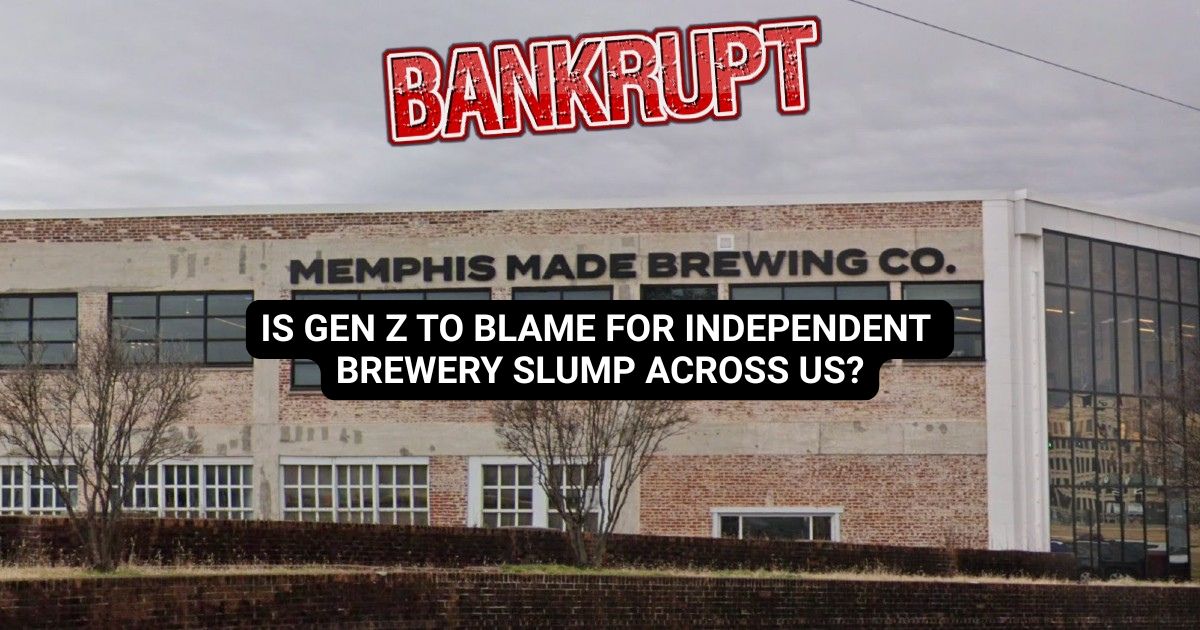Memphis Made Brewing Co. LLC has filed for Chapter 11 bankruptcy under Subchapter V, a streamlined reorganization option for small businesses established in 2019. Co-founder Andy Ashby explained to the Memphis Business Journal that this move aims to help the brewery reorganize its debts and possibly discharge some of them, ultimately positioning the company for future success.
The filing, submitted on August 7, lists Guaranty Bank and Trust, the U.S. Small Business Administration (for an EIDL loan), and Chase Credit Card as its largest creditors.
The owners are also exploring a possible sale. Ashby emphasized that operations will continue uninterrupted, stating, “We’re not letting any of our people go. Our employees are the most important part of our company. I got into this business for the people who enjoy beer.” He further noted that their new facility, which opened in the Edge District in 2024 after their initial launch in Cooper-Young in 2013, offers excess production capacity, making it an attractive option for potential buyers.
In 2024, Memphis Made produced approximately 3,100 barrels of beer, ranking as the No. 4 largest local producer. Their beer is distributed across Tennessee, Missouri, and North Mississippi, and they have a restaurant presence at Memphis International Airport. The bankruptcy filing estimates that both assets and liabilities are in the range of $1 million to $10 million.
Broader Trends: Younger Adults Drinking Less & Brewery Popularity Declining
Declining Alcohol Consumption Among Younger Generations
paragraph – A Gallup survey found that the share of U.S. adults under 35 who say they drink has fallen from 72% in 2001–2003 to just 62% in 2021–2023. Young adults today are also less likely to drink regularly or overindulge. In 2001–2003, 67% reported drinking in the past week; by 2021–2023, that dropped to 61%. Instances of over‑drinking among young adults fell from 21% to 13%.
Generation Z, in particular, is drinking 20% less per capita than Millennials did at the same age, driven by a growing focus on health and wellness. Surveys show that nearly two‑thirds of Gen Z adults now view alcohol as harmful to their health, with many abstaining entirely; non‑alcoholic beverage sales have surged—up 28% from 2019 to 2024
Craft Beer’s Rise and Fall
The 2010s saw explosive growth: craft brewery numbers climbed from around 2,000 in 2011 to over 5,200 by 2016.
However, the early 2020s brought downturns: 2023 marked a 1% production decline, with fewer openings and hundreds of closures.
In 2024, brewery closures outpaced openings for the first time since 2005. Independent craft beer output dropped 4%, with 501 closures versus 434 new openings, according to BrewersAssociation.org. Their data also showed that U.S. beer production and imports fell by 1% in 2024, while craft brewer volume sales declined 4%, impacting small and independent brands, according to brewersassociation.org.
Market research (e.g., Circana) finds craft beer sales down 3.3% (about $158 million) in 2024, according to TastingTable.com.
These declines reflect shifts in consumer preferences—especially among younger drinkers—as well as market saturation and economic pressures.
Memphis Made Brewing Co.’s bankruptcy and exploration of a potential sale are emblematic of larger industry and cultural dynamics. As younger generations move away from regular drinking and demand for craft beer softens, many small breweries face intensifying challenges. Memphis Made’s current challenges mirror a broader “rationalization” of a previously booming craft beer market—where reorganization, consolidation, or closure has become the new norm.







